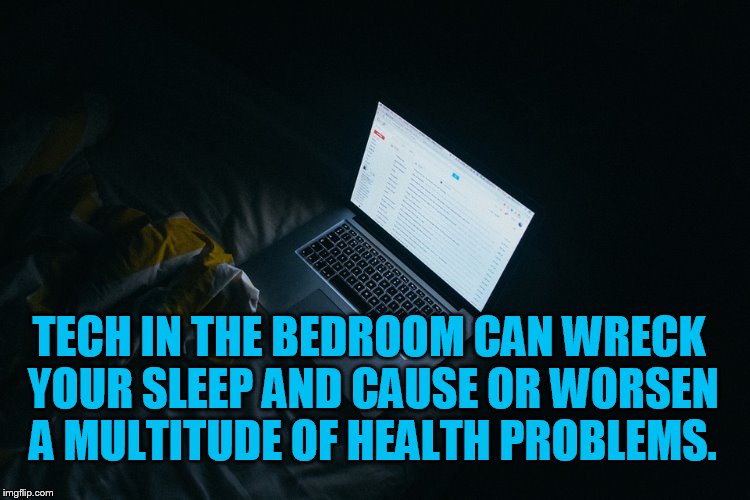 By B.N. Frank
By B.N. Frank
Experts have warned for years about privacy and security risks with Amazon products (Alexa, Echo, Ring, etc.) and most recently about the company’s controversial Sidewalk program. The company must be confident that people will still buy its new sleep tracking tech anyway.
From Gov Tech:
Privacy Concerns Abound With Amazon’s Sleep-Tracking Tech
The federal government recently approved an idea from Amazon to track people’s sleep patterns through new technology. Experts warn that Amazon is taking a creepy step into American bedrooms with this approach.
(TNS) — At first glance, it’s one of those things that appears relatively benign: Amazon received federal approval the other day to develop a device for tracking your sleep patterns.
When you look closer, though, questions arise.
Will the device’s radar sensors become an even more intrusive threat to our privacy than the microphones and cameras that the likes of Amazon, Apple and Google already have in millions of homes?
And what exactly does it mean having a radar-wave emitter beside your bed? Is it safe?
First the good news. Every expert in radar technology I consulted shrugged off the potential risk of being bathed all night in low-level electromagnetic radiation.
“Even though you might spend a lot of time next to this thing while sleeping, you would get much more harmful exposure by working outdoors for a similar length of time,” said Paul Siqueira, a professor of electrical and computer engineering at the University of Massachusetts Amherst.
In terms of radiation output, he told me, “compare this to something like a lightbulb.”
Dustin Schroeder, an assistant professor of geophysics at Stanford University who uses radar to study the planet, said the technology Amazon was proposing isn’t that different from signals emitted by cellphones and other wireless devices.
“Since I have those things in my room,” he said, “I’d feel similarly comfortable, from a safety point of view, with one of these radar systems.”
As for privacy, though, that’s a different matter.
I made passing reference to Amazon’s new technology in Tuesday’s column on how the pandemic had resulted in what one expert called “an epidemic of sleep deprivation.”
A recent study by the American Academy of Sleep Medicine found that more than half of all Americans have had problems sleeping since COVID-19 arrived.
Sleep monitoring is a growth industry for Silicon Valley. It’s a selling point for wearables such as the Apple Watch and Fitbit. Now such systems are taking root in the home.
In March, Google revealed the latest version of its Nest Hub smart display. It incorporates what the company calls Soli sensors, which are very similar to what Amazon is apparently now planning to put into Alexa-powered gadgets.
But because Amazon is the much more aggressive retailer, and because it dominates the market for smart speakers and displays, Amazon’s interest in radar-powered devices represents the bigger shot across Americans’ privacy bow.
“Surveillance as a service has come to sleeping technology, and it’s as creepy as Silicon Valley gets,” said Andrew Guthrie Ferguson, a law professor at American University who focuses on privacy issues.
“The privacy of your bedroom is a place that deserves the utmost protection from outside forces, especially from private companies without much regulation or oversight,” he told me. “Companies wishing to monetize sleep habits are signaling that there is nowhere outside their reach.”
In its request for Federal Communications Commission approval, Amazon acknowledged its radar technology would “operate at higher power levels than currently allowed.” It would be “used for sleep tracking and could help improve consumers’ awareness and management of sleep hygiene.”
In regard to having a “radar-wave emitter” beside your bed – there is peer reviewed published research that has confirmed that exposure to cell phones and other common wireless devices (activity trackers, “Smart Home” appliances, utility “Smart” Meters, etc.) is NOT safe (see also1, 2, 3). In fact, research has determined that exposure can also affect sleep (see 1, 2). Over the years, medical experts have recommended keeping cell phones and other wireless devices away from our beds because of health risks. Got pets? Exposure to electromagnetic radiation can affect them too.
The Federal Communications Commission (FCC) has catered to the telecom and cable industries for decades (see 1, 2). Lawsuits have been filed against the agency for NOT protecting the public from unsafe levels of cell phone and WiFi radiation as well as 5G on Earth (see 1, 2, 3, 4, 5) and in space. Earlier this week, the Environmental Working Group (EWG) asked that the agency update it’s “woefully outdated” radiation exposure guidelines.
Sweet dreams.
Activist Post reports regularly about unsafe technology. For more information visit our archives and the following websites.
- Electromagnetic Radiation Safety
- Environmental Health Trust
- Physicians for Safe Technology
- Wireless Information Network
Become a Patron!
Or support us at SubscribeStar
Donate cryptocurrency HERE
Subscribe to Activist Post for truth, peace, and freedom news. Follow us on Telegram, SoMee, HIVE, Flote, Minds, MeWe, Twitter, Gab, Ruqqus , GETTR and What Really Happened.
Provide, Protect and Profit from what’s coming! Get a free issue of Counter Markets today.
FCC Approves Amazon’s Sleep Tracking Tech; Includes “a radar-wave emitter” Next to Your Bed